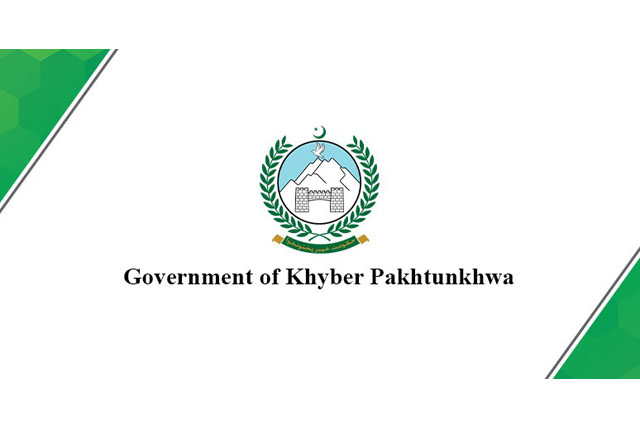January 26, 2022: Federal Minister for Finance and Revenue, Shaukat Tarin said Wednesday that despite four big crises the country had to face during the past three-and-half years, the economy has been heading in the right direction as it grew by 5.37 percent during the fiscal year 2020-21 and is expected to grow by 5% during the current year.
“This (growth) was not expected by anybody but it happened,” the federal minister said while addressing a press conference here adding that all sectors of the economy including manufacturing, agriculture and services witnessed growth during the period.
He said, that earlier the growth for the last year was expected to hover around expecting 3.94%, but since the large scale manufacturing witnessed considerable growth in June 2021, which jacked up overall growth figures for the year.
He expressed the hope that growth during the current year is expected at 5 percent as overall revenue collection has witnessed tremendous growth, with electricity utilization increasing by 13 percent exports on rise and bumper crops expected.
Enumerating four big crises the incumbent government had to face during the past three and half years, the minister said, when the incumbent government took over, it had to pay around $29 billion as there was a $20 billion current account deficit whereas payments of around $9 billion were also due.
He said the Prime Minister went to friendly countries and collected dollars, however, the country had to go into IMF programme later, which was the toughest one following which the government had to increase the discount rate, make currency devaluation, enhance utility prices to overcome the deficit.
He said the second crisis was the spread of the Covid-19 pandemic, which he called was a ‘once in a century crisis’ that had affected the country as well as the whole world.
He added the third crisis the government had to face was the commodity price cycle which was recorded at 20 years' high and resultantly countries' four big imports increased from 85 to 100 percent.
He said the fourth crisis was created due to the situation in Afghanistan when the United States left and frozen reserves of the neighboring country and impacted Pakistan’s currency market.
He said when the Covid-19 pandemic hit the world, the Prime Minister took a tough decision and opted for a smart lock-down to ensure businesses run. In addition, he provided incentives for enhancing exports, particularly the textile sector, injected money in agriculture to reduce dependence on food imports and accorded priority to construction.
He said the Covid-19 was handled successfully adding the Economist Normalcy Index kept the country at first three positions for three consecutive times, adding that now even advanced countries were following Pakistan’s smart lockdown strategy.
He said that owing to prudent policies, the exports from the country increased by up to 29% whereas the remittance also witnessed considerable growth.
He said that currently the country’s exports are being recorded at $3 billion per month compared to $2 billion in the past, adding that if the trend continues, the exports of goods could reach $31 billion whereas the IT exports are expected to touch $3.5 billion figures.
He said that there was also robust growth in remittances which were recorded at $29 billion last year whereas during the first six months the remittance stood at $15.8 billion.
He said the country’s machinery imports increased to $11.8 billion, however added that these would benefit the country in the coming days.
He said during the past three and half years, the private sector off-take was recorded at the highest Rs1.45 trillion (all-inclusive) whereas there was no borrowing from the State Bank of Pakistan since 2019.
He said the profitability was recorded at Rs929 billion of 100 big companies compared to Rs580 during the past period of the last regime.
He said the revenue collection was growing by 33 percent whereas bumper crops were expected this year that would help boost the economy.
The minister said under the Ehsaas Rashin, 20 million households were provided Rs1000 per month for the purchase of ghee, pulses and flour whereas the Kamyab Pakistan programme has been started under which Rs one billion was disbursed last month in Khyber Pakhtunkhwa and Balochistan whereas the disbursement would touch 30 billion per quarter all across the country soon.
The minister said that the government is making a programme to target salaried classes of middle and lower-middle-class to provide them relief.
Replying to a question with regard to the new ranking of Pakistan issued by Transparency International (TI), the minister said that the TI has maintained all other indicators at the previous level except one Economic Intelligence Unit, the score of which decreased from 37 to 20 which caused a decline in Pakistan's ranking.
“So far the TI has issued only a brief one-pager, and as soon as we get the detail, we will respond in detail,” he said adding that prime minister Imran Khan has been insisting on improving the rule of law in the country which is the main indicator of the TI.
Responding to another query, Tarin said the exchange rate is mainly linked with inflation so as soon as the inflation is controlled, the exchange rate would also be controlled.
He said in the coming months, the country's trade deficit would significantly shrink owing to no import of sugar, wheat, and COVID vaccine.
With respect to sustainable growth, the minister explained that sustainable growth could be possible by three main factors, the first of which is increasing savings which are only 15-20% of GDP and with these savings, any country could grow by hardly 4%.
Second, he said the gap between imports and export would have to be reduced. He said the government is trying its best to boost export and reduce imports and its result would come in the coming months.
The third factor is productivity, he said adding that unfortunately the country's agriculture and industrial production had remained stagnant in the past. However, he said the incumbent government is taking solid steps to enhance productivity.
He said the government is also taking steps to improve Information technology export and hoped that in the next five years, the IT export could surge to around $50 billion.
APP
30421







